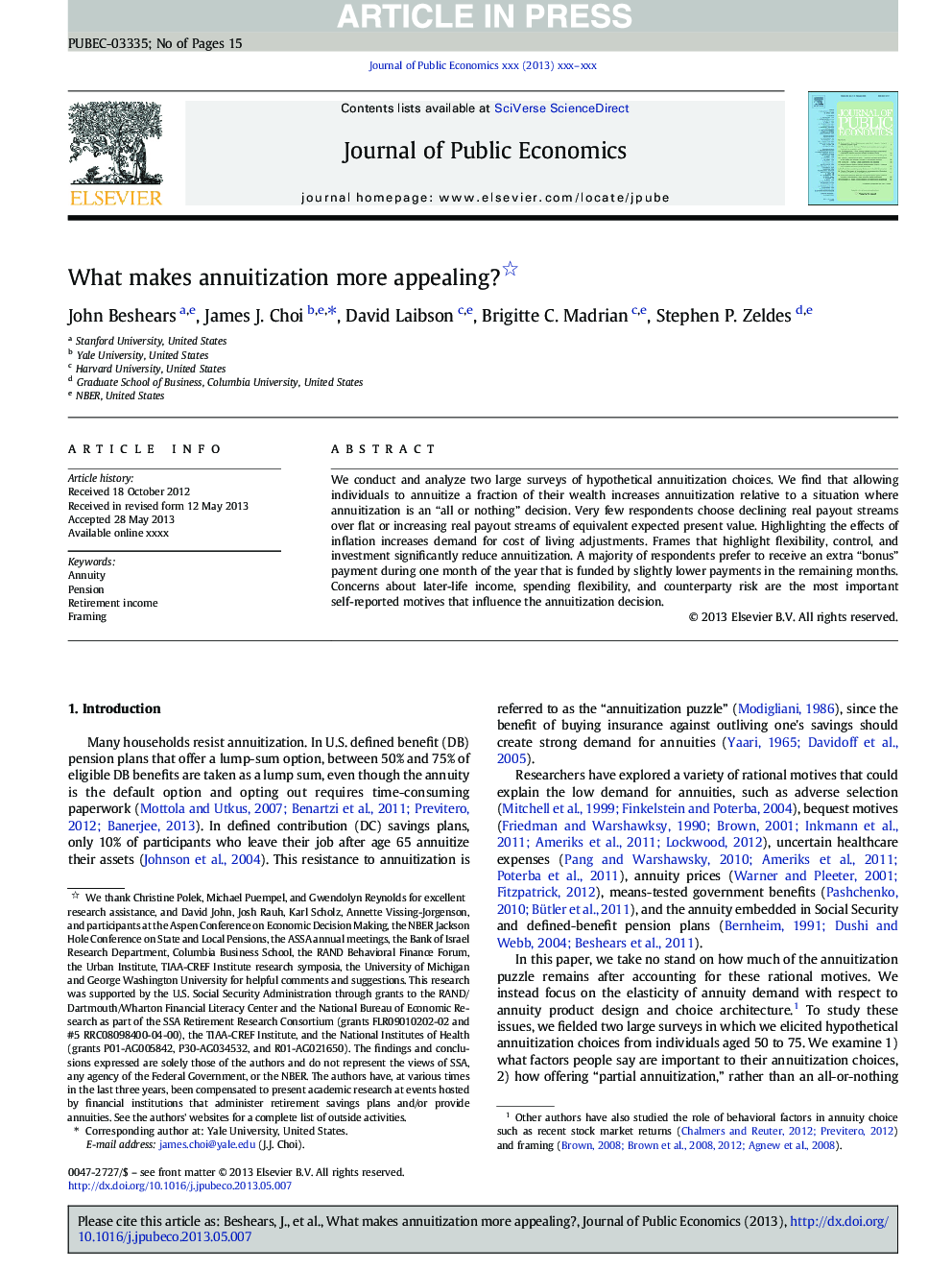| Article ID | Journal | Published Year | Pages | File Type |
|---|---|---|---|---|
| 7370303 | Journal of Public Economics | 2014 | 15 Pages |
Abstract
We conduct and analyze two large surveys of hypothetical annuitization choices. We find that allowing individuals to annuitize a fraction of their wealth increases annuitization relative to a situation where annuitization is an “all or nothing” decision. Very few respondents choose declining real payout streams over flat or increasing real payout streams of equivalent expected present value. Highlighting the effects of inflation increases demand for cost of living adjustments. Frames that highlight flexibility, control, and investment significantly reduce annuitization. A majority of respondents prefer to receive an extra “bonus” payment during one month of the year that is funded by slightly lower payments in the remaining months. Concerns about later-life income, spending flexibility, and counterparty risk are the most important self-reported motives that influence the annuitization decision.
Related Topics
Social Sciences and Humanities
Economics, Econometrics and Finance
Economics and Econometrics
Authors
John Beshears, James J. Choi, David Laibson, Brigitte C. Madrian, Stephen P. Zeldes,
